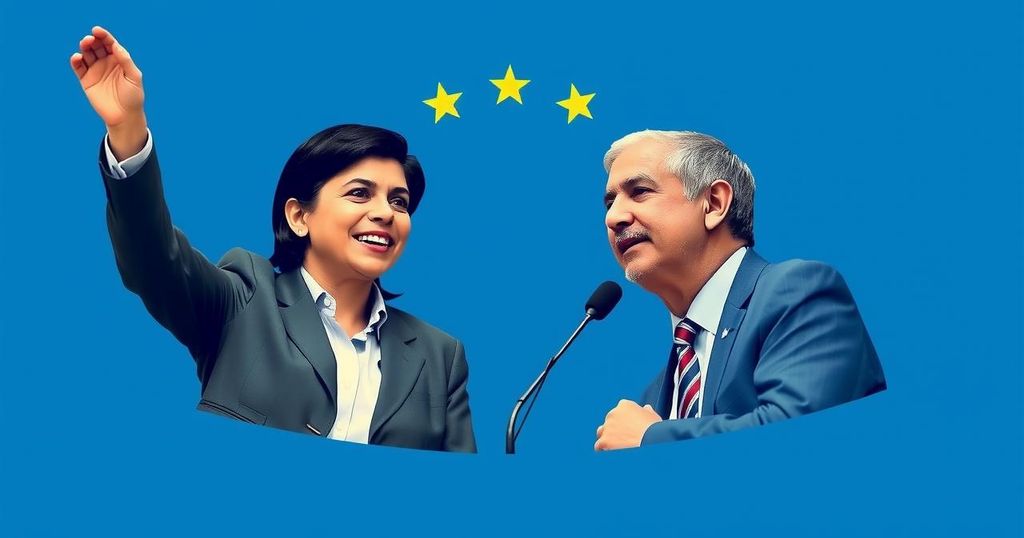Uruguay held a presidential election featuring two moderate candidates, Álvaro Delgado and Yamandú Orsi, amidst high voter turnout and a significant referendum on social security. The election reflected the nation’s political stability, contrasting sharply with the divisive climates in neighboring South American countries. Both candidates exhibit consensus on many issues, with a focus on maintaining the country’s economic growth and social welfare programs.
On a significant electoral day in Uruguay, the nation witnessed a peaceful and stable democratic process as voters selected a new president among two moderate candidates, Álvaro Delgado from the ruling coalition and Yamandú Orsi from the opposition. The election took place against a backdrop of high voter engagement, with over 88 percent turnout reported amid compulsory voting regulations. This election was notable not only for its focus on the presidential race but also for the contentious referendum regarding an overhaul of the social security system, which has garnered considerable media attention. Uruguay’s political landscape remains relatively stable compared to its regional neighbors, characterized by competing narratives of political volatility and polarization seen in countries like Brazil and Argentina. Both candidates, while representing divergent political groups, share common ground on numerous key issues, leading analysts to predict continuity rather than radical change for Uruguay’s governance amidst a context of satisfaction with economic policies and steady growth. While Delgado highlights the government’s achievements and maintains an active social media presence, Orsi emphasizes the nation’s democratic traditions and the importance of preserving citizen participation in governance. Notably, the former president, José Mujica, continues to influence political discourse, advocating for the value of democracy despite its imperfections. The third candidate, Andrés Ojeda, appeals to younger voters with a unique campaign style, although he is trailing in support. As the election unfolds, the proposed changes to the social security system remain a critical point of contention, involving significant financial implications and contrasting visions for Uruguay’s social policies. Voter sentiments reflect a mix of concern over social issues, including child poverty and rising crime rates, and an overall desire for a balanced approach to governance that respects both economic growth and social welfare.
Uruguay has a long-standing reputation for political stability and democratic governance, distinguishing itself from several neighboring countries experiencing political turbulence and division. The electoral process in Uruguay is marked by compulsory voting, leading to high participation rates among its electorate. The current election cycle features not only the presidential elections but also a significant referendum on social security reform, which is central to the candidates’ platforms and electoral debates. Historically, Uruguay has embraced progressive social policies, including the legalization of same-sex marriage and cannabis, establishing a foundation of liberal governance from 2005 until 2020 with the leadership of the Frente Amplio coalition. Over the years, the political climate has remained relatively stable, with citizens generally satisfied by government efforts and economic management, a crucial factor as political analysts assess the current electoral landscape.
The recent presidential election in Uruguay underscores the nation’s commitment to democratic processes and political stability, as evidenced by high voter turnout and the moderate nature of the candidates involved. As Álvaro Delgado and Yamandú Orsi vie for the presidency, the electorate navigates concerns over social policies, economic management, and security issues. The outcome of the social security referendum and the presidential election signals Uruguay’s direction amidst broader regional trends of political instability, reinforcing its status as a model democracy in South America.
Original Source: www.pbs.org







